Al House / VPS Architetti
Al House / VPS Architetti
HOUSES
CASTELMUZIO, ITALY
Architects: VPS Architetti
Area :
430 m²
Year :
2019
Photographs :studio_vetroblu
Manufacturers : Catalano, Irsap, Mattiazzi, Panzeri, Rexa Design, Smeg, Zucchetti, AMURA LAB, Buzzi & Buzzi, FLOS, PURALUCE, SILVERPLAT
Lead Architect : Giuseppe Vallifuoco
Architectural Design : Gianluca Anolfo, Luigi Depperu
Site Supervision : Gianni Mencacci
Construction : Morelli Costruzioni
Mechanical System Design : Eko-tek
Structural Design : Luca Rossi
Windows And Custom Finishes : Art Cinque
Mechanical Subcontactor : Termoidraulica Monaci Samuele
Electrical Subcontractor : Mgm Impianti
City : Castelmuzio
Country : Italy
Did you collaborate on this project?
LESS SPECS
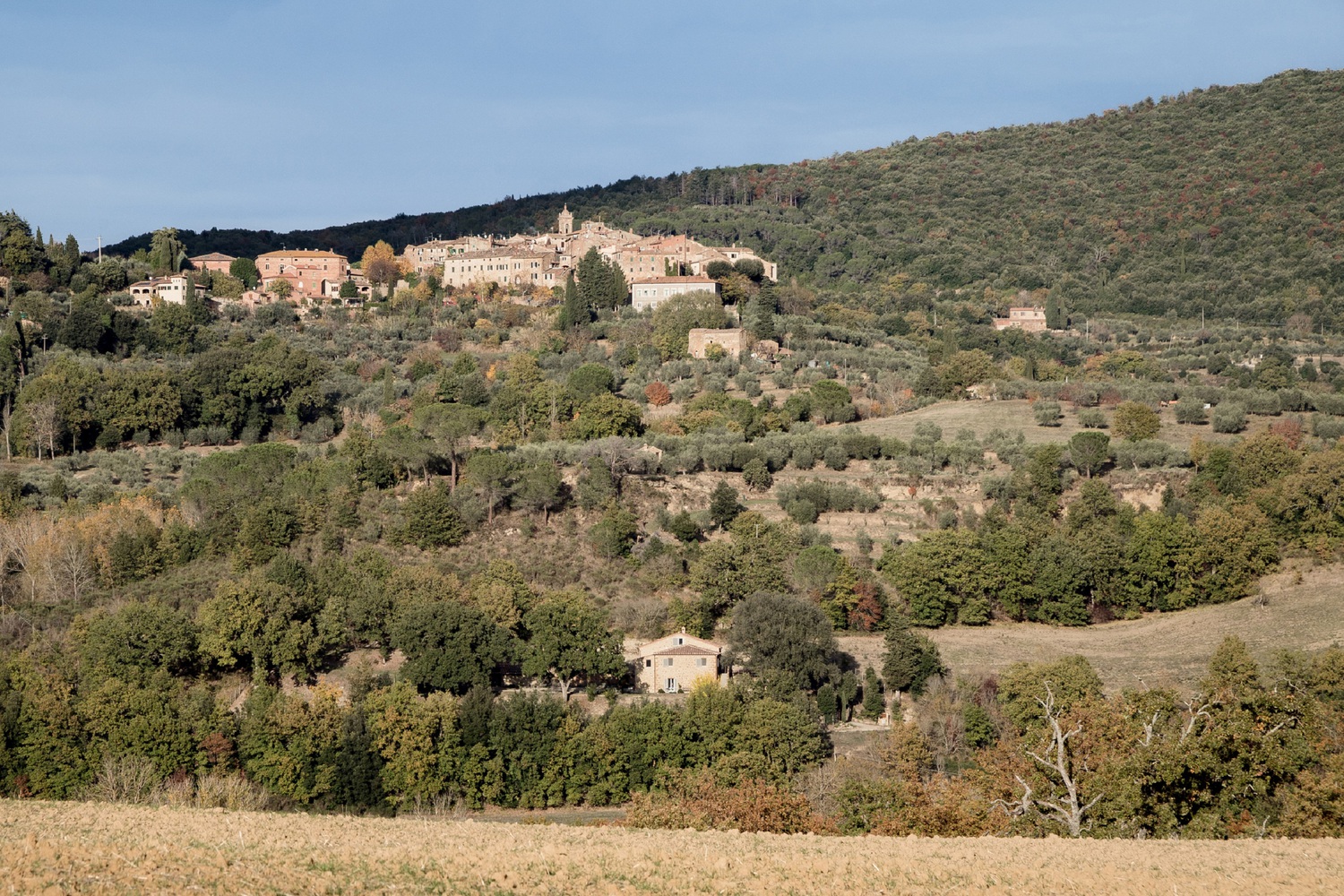

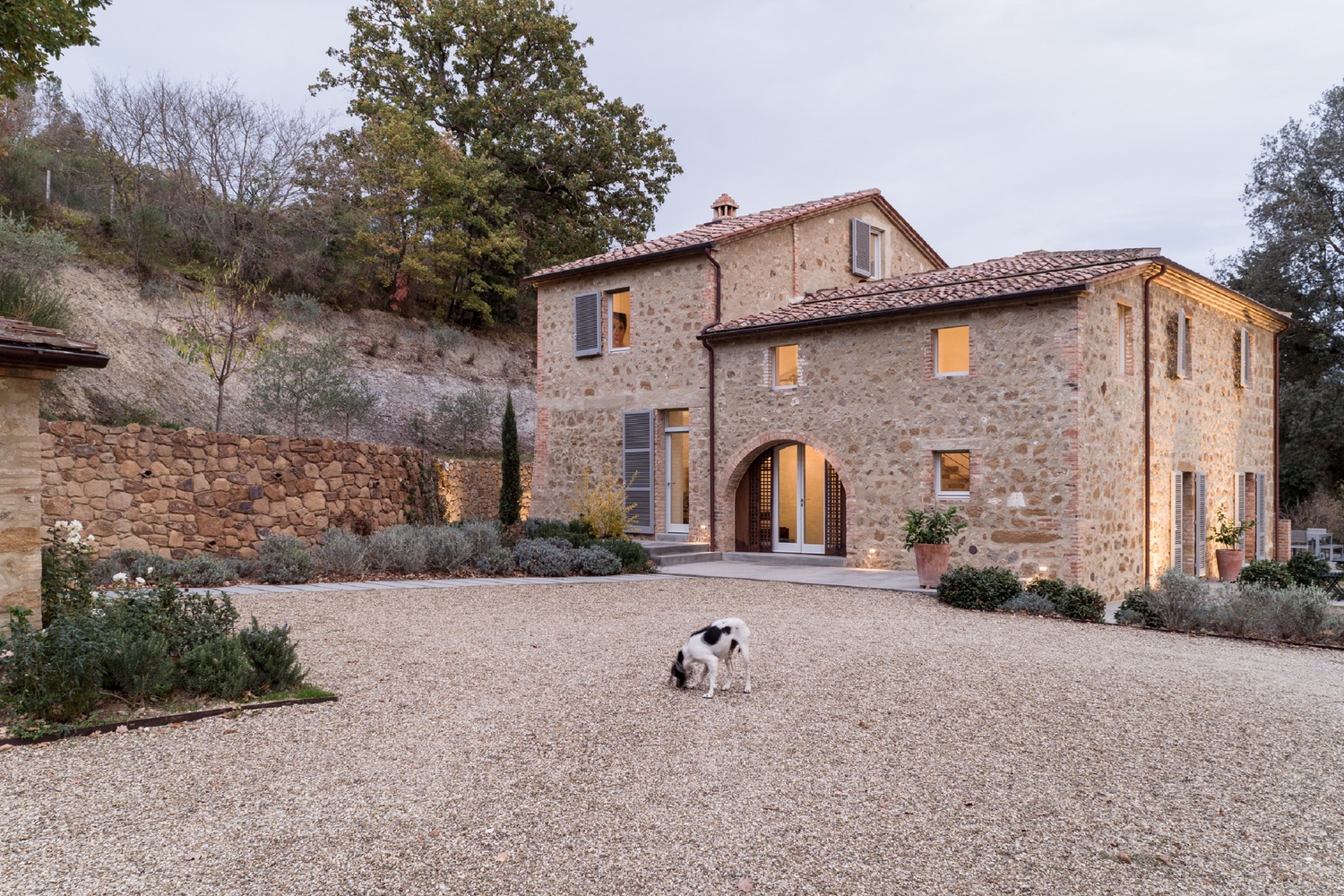
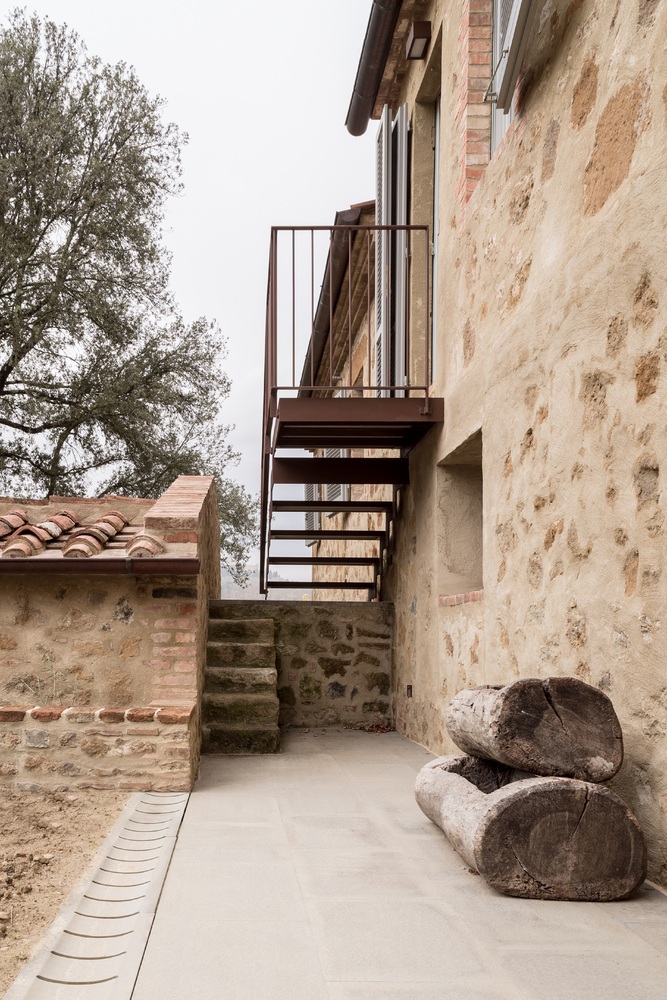
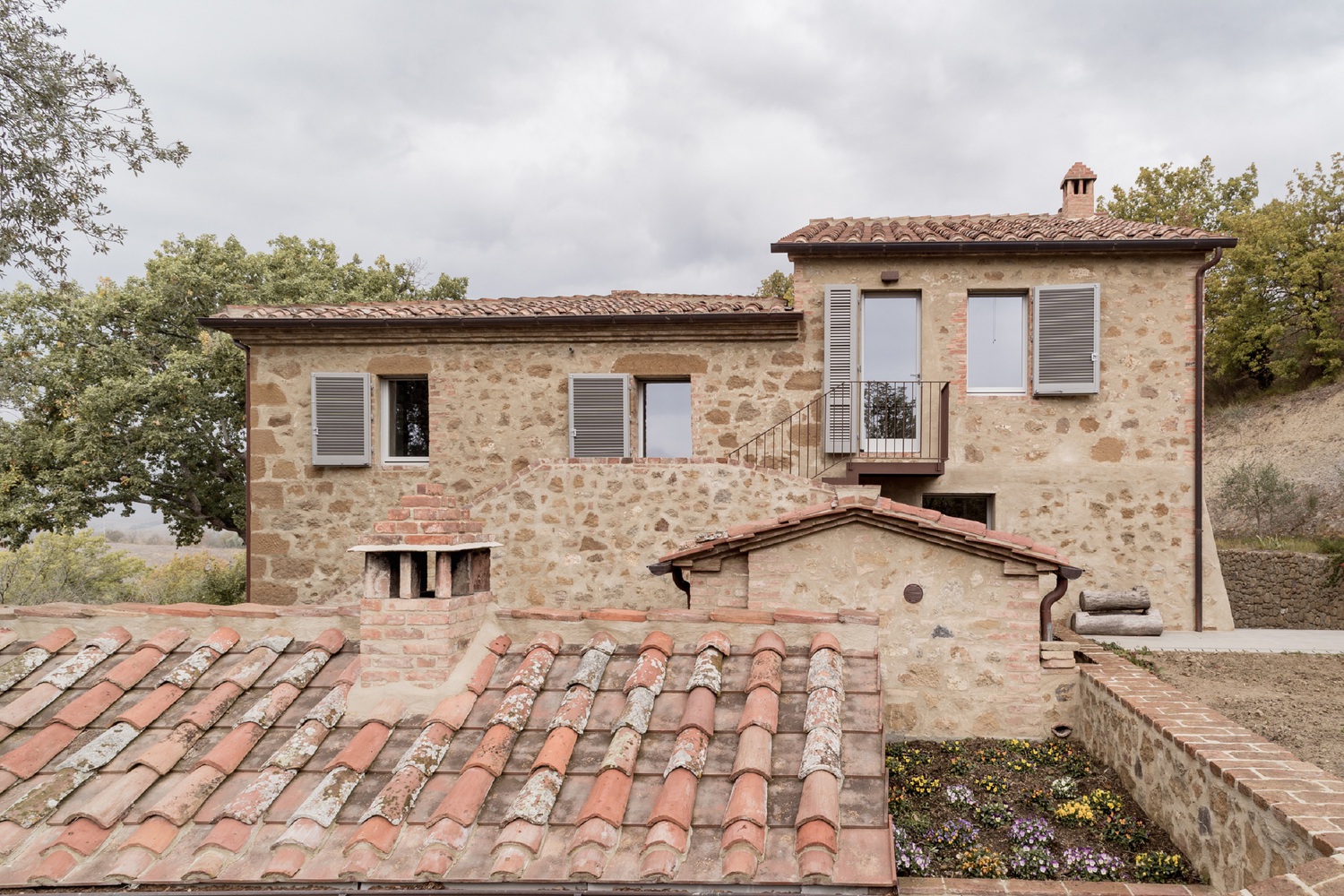
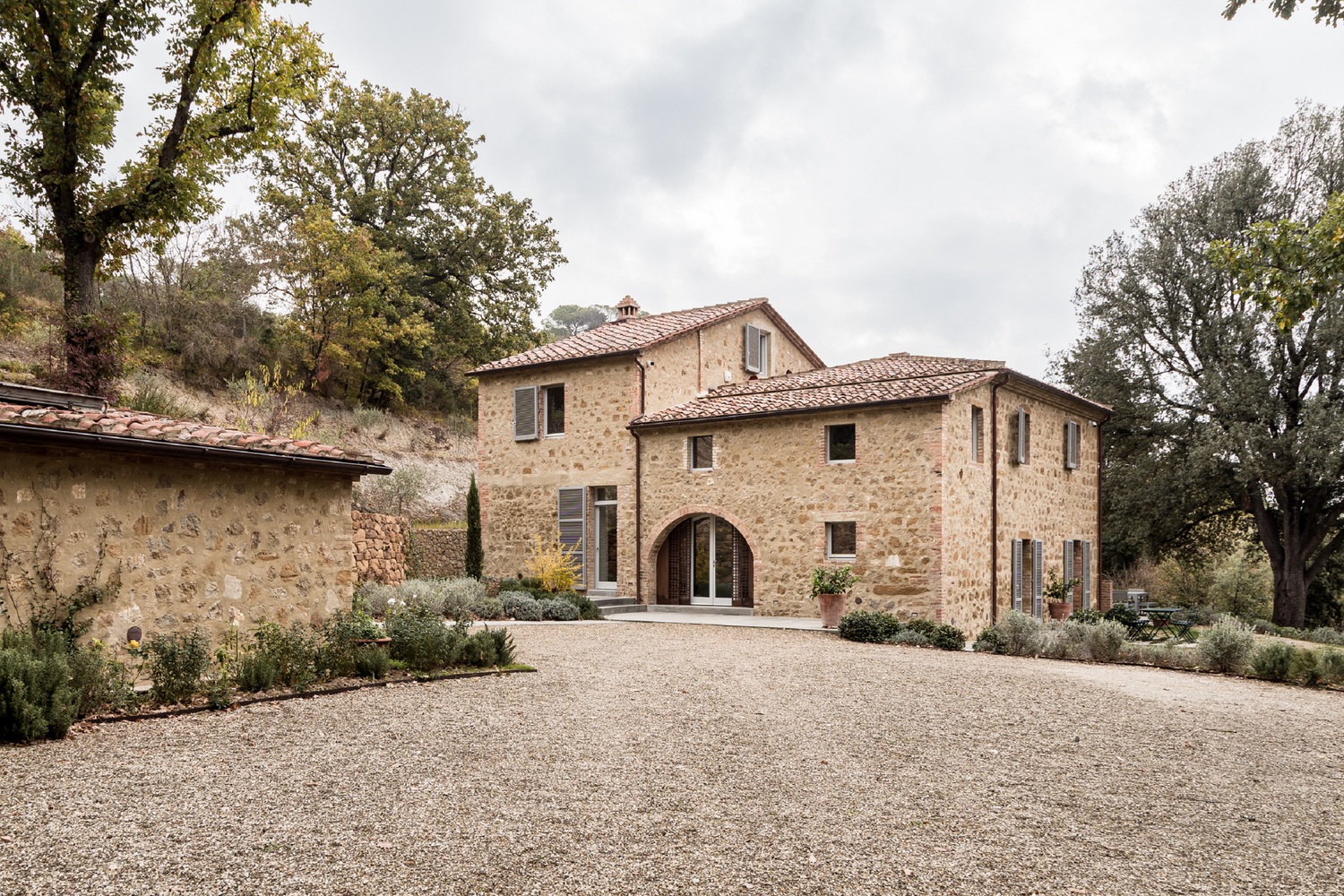
Text description provided by the architects. The farmhouse and guest quarters are located near the historic center of Castelmuzio, a small village in Val d'Orcia along the road leading to Pienza. It is nestled halfway up a hillside and looks towards the parish church of S. Anna in Camprena, a former 15th-century Benedictine Monastery. The original farm building, whose typological characteristics and construction methods seem to date to the second half of the 19th century, was subject to subsequent additions and alterations until the 1950s. The heterogeneity of these different elements was taken into account in determining a new and coherent spatial and functional program.
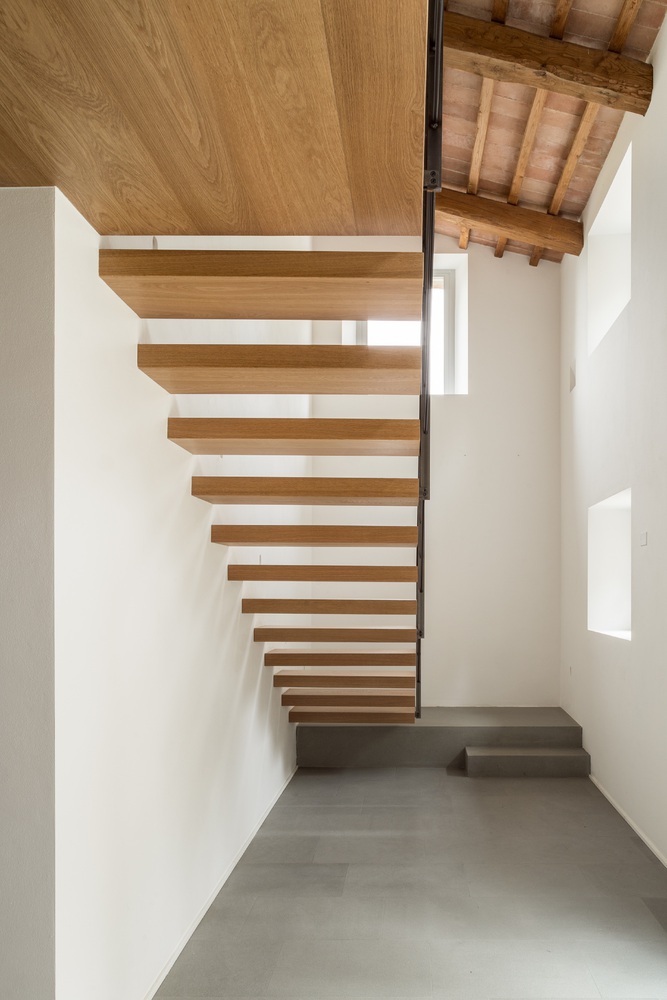

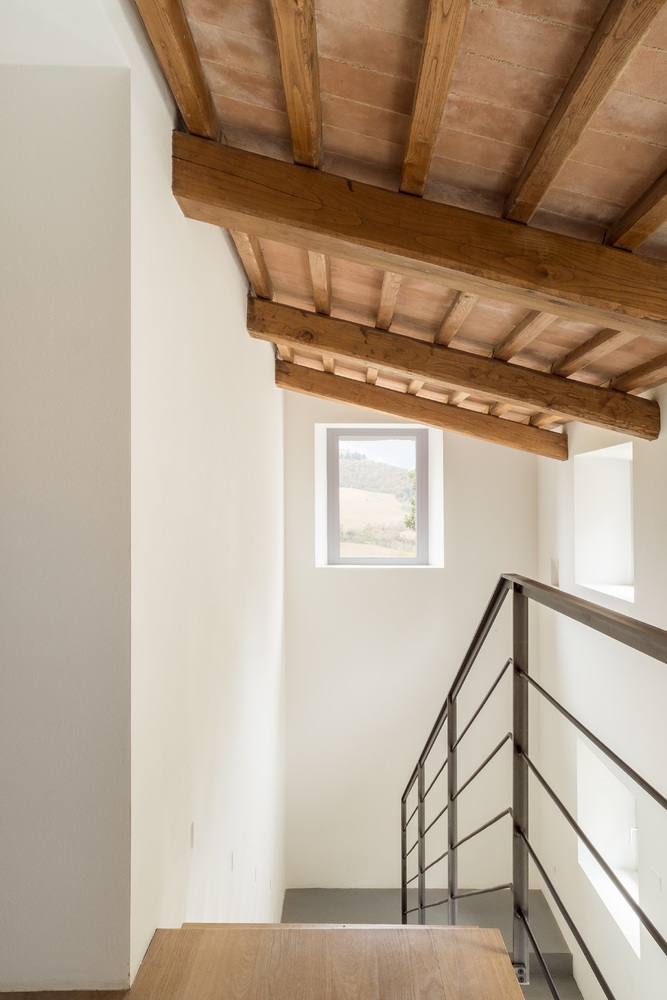
The project adapted the buildings to client needs by spatially redistributing and reinterpreting the interiors and introducing contemporary mechanical systems without increasing or altering the existing volumes and without changing the original architectural features of the façades, regulated by landscape protection codes. The result is a project that tells two seemingly different, but intimately linked, stories – one continuing the other.
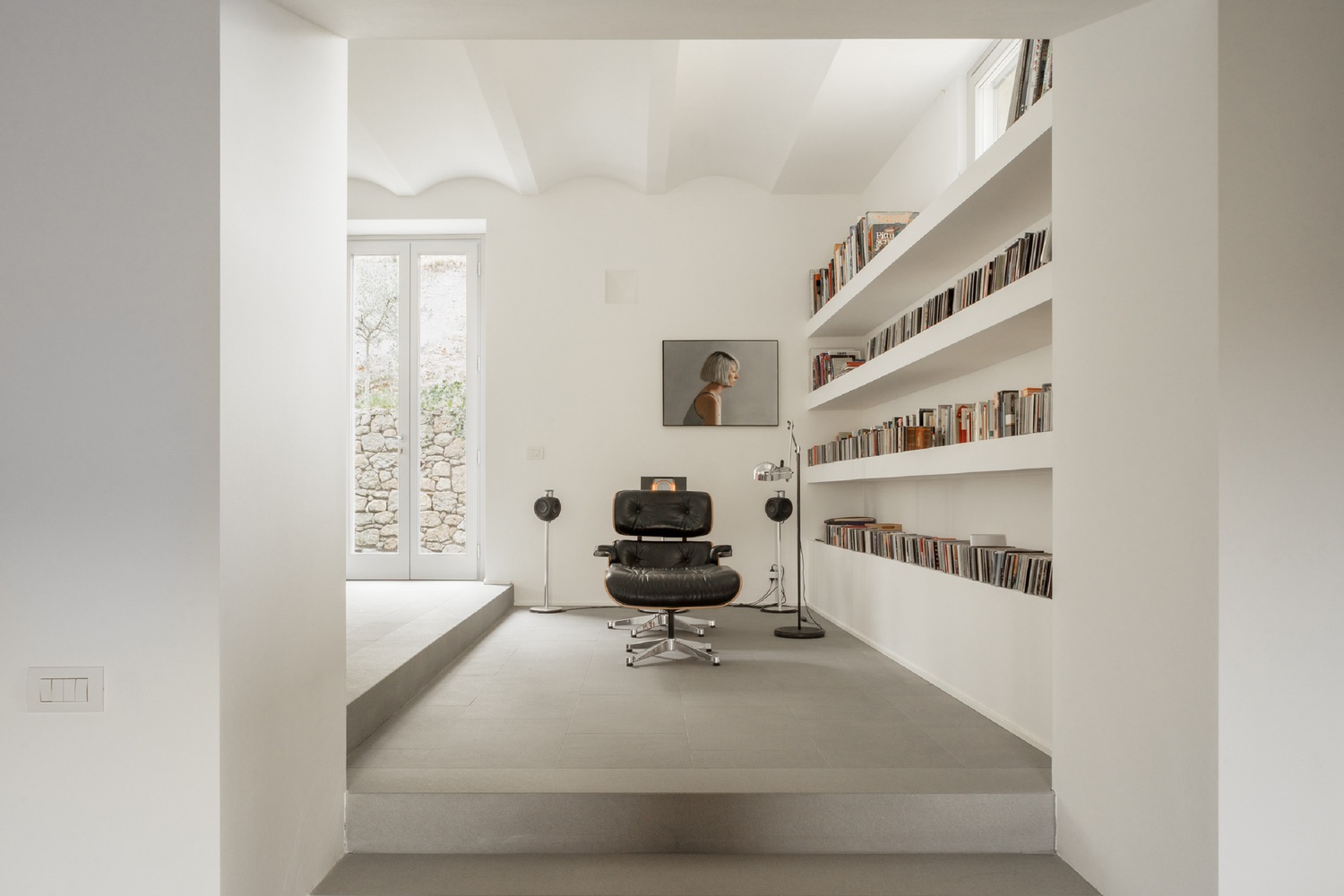

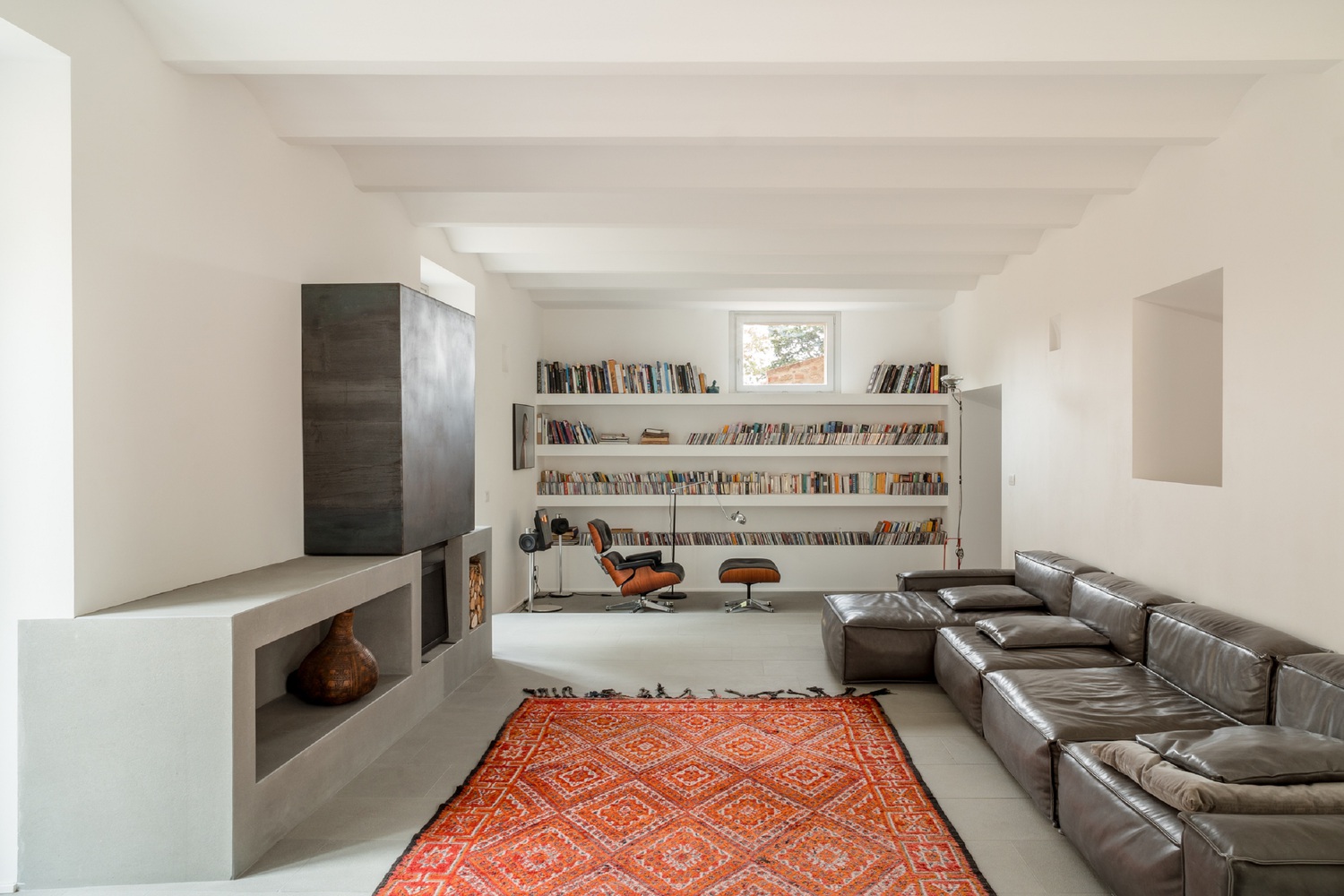

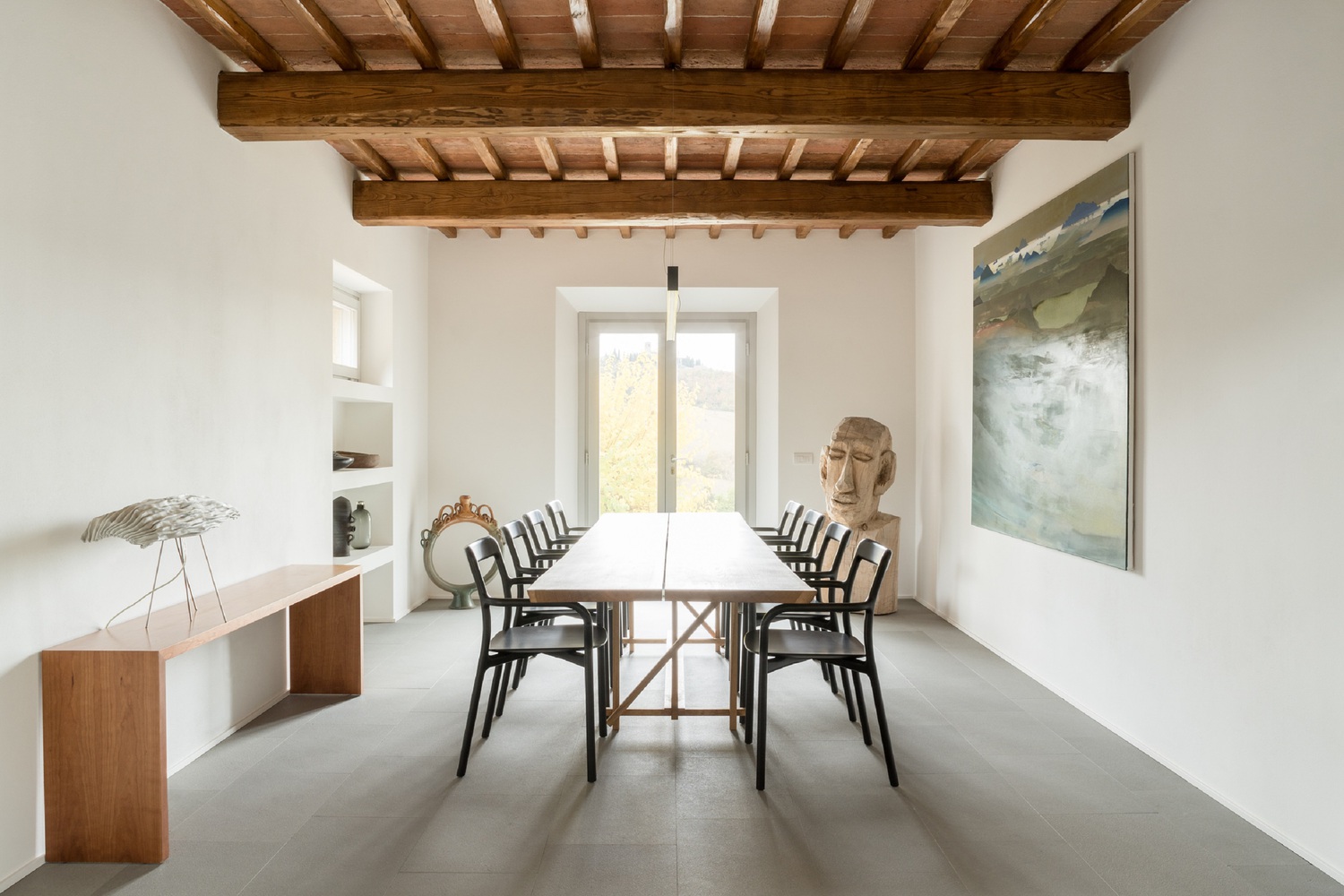
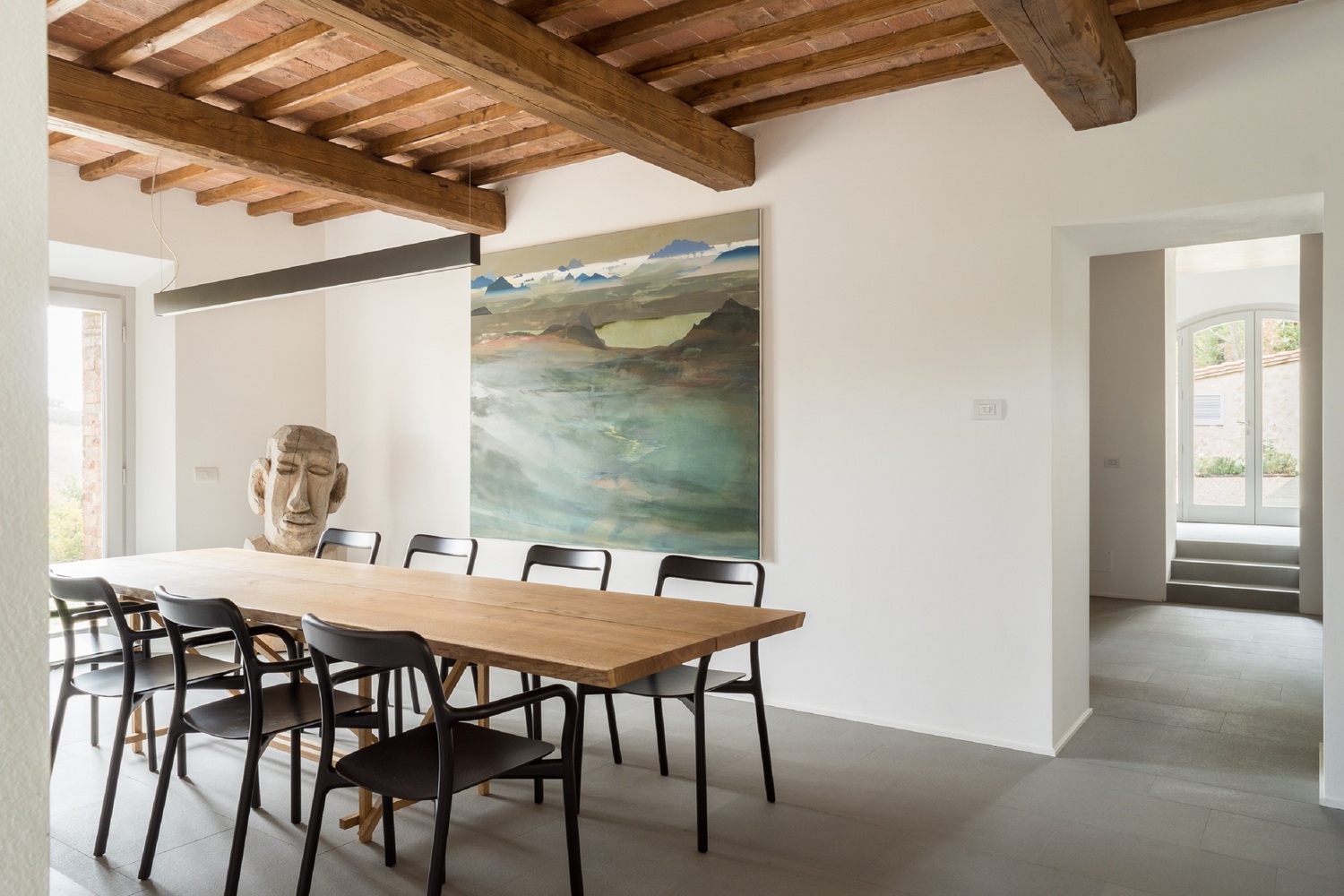
The house's exteriors allude to its memory while its heart expresses the present. With two levels and a mezzanine, the house is dynamically organized around double volumes, new views, and fluid interior spaces. The orientations, views, and relationships between interiors and the surrounding spaces guided the main design choices.
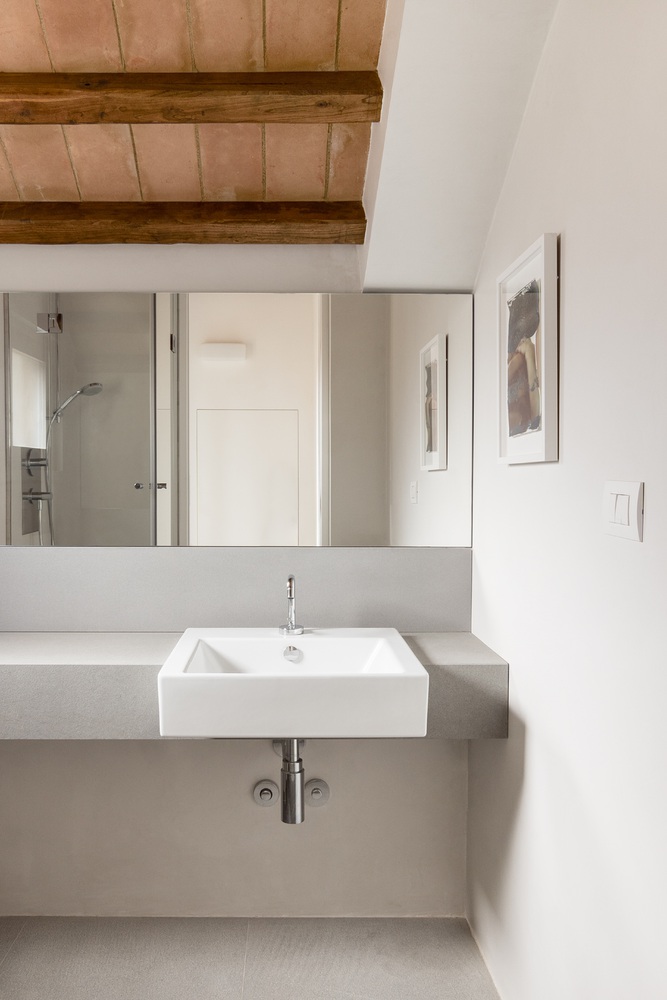
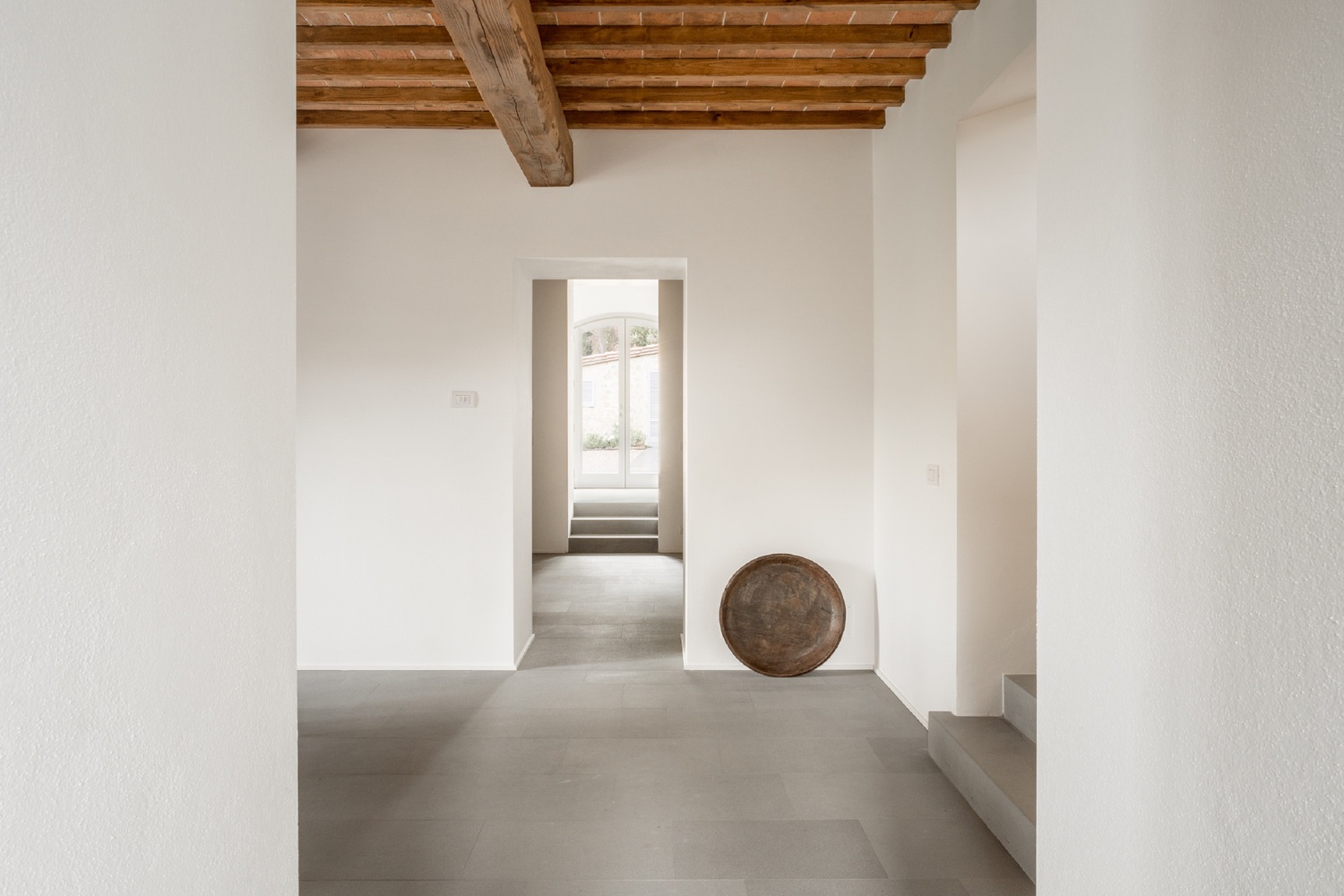
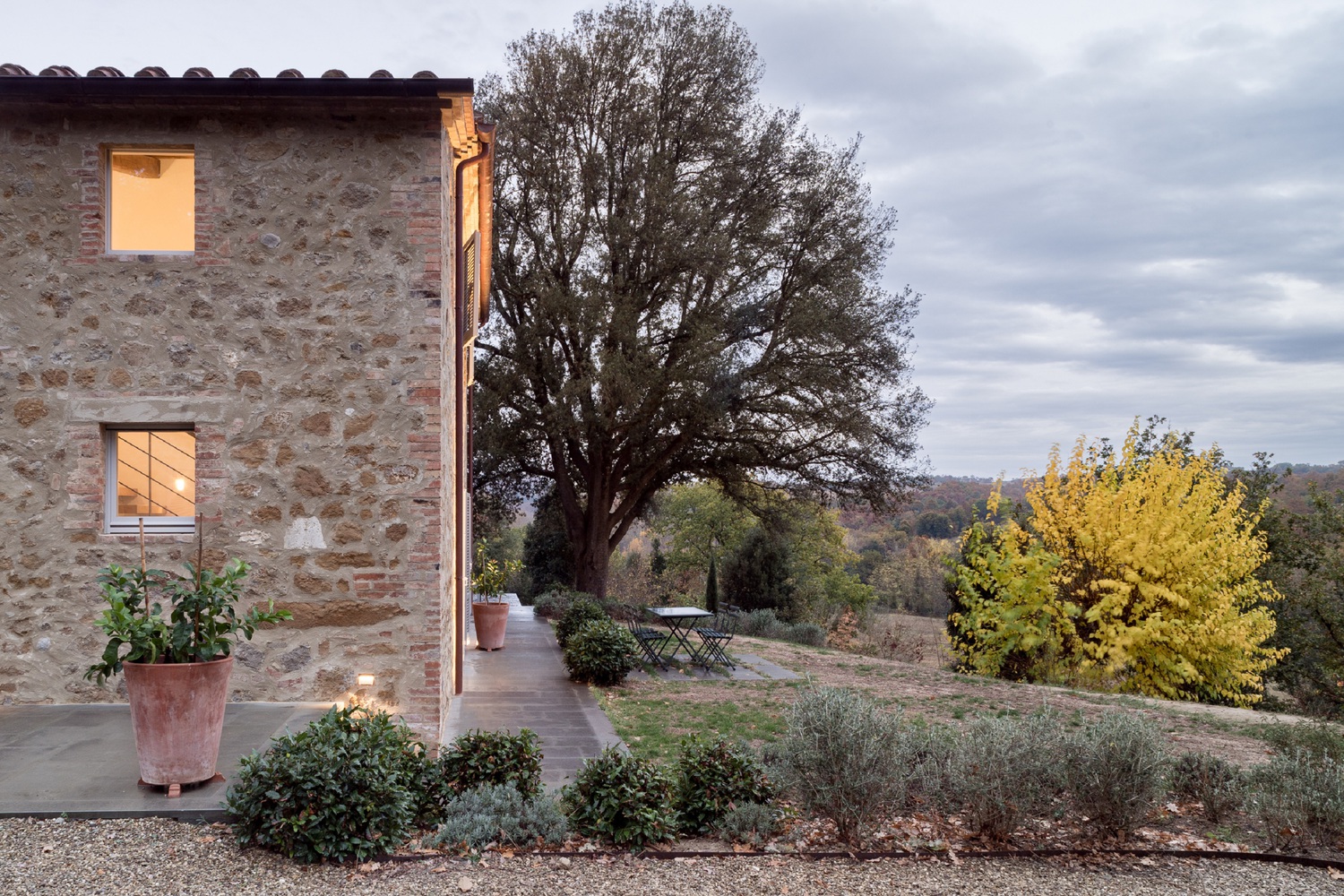
On the ground floor, the south was chosen as the best orientation for the dining area and kitchen - well-lit during the winter and in direct contact with the exteriors. On the north side is the former stable space - now the living room with a fireplace and two French doors opening to the outdoors and two windows to the east and west, respectively. The living room is connected by a large interior opening and some steps to the dining area so that south light penetrates during the winter.
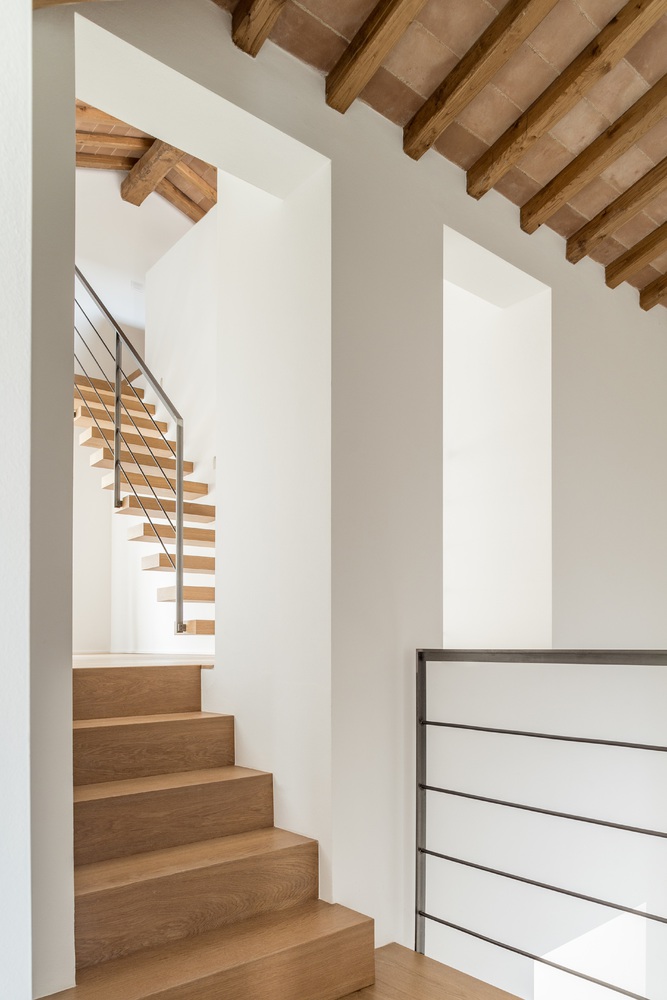
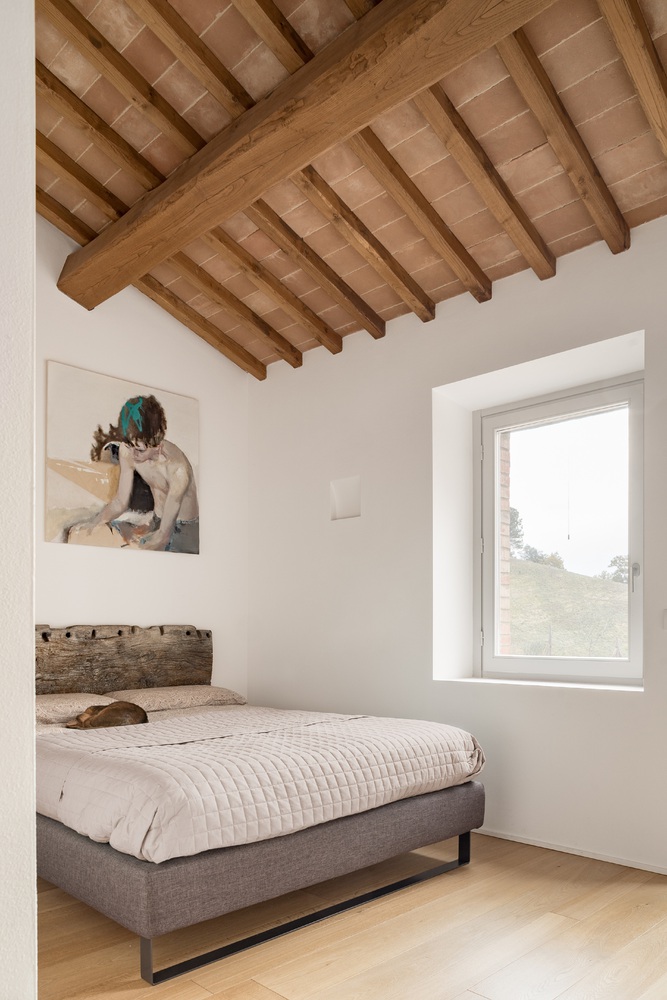

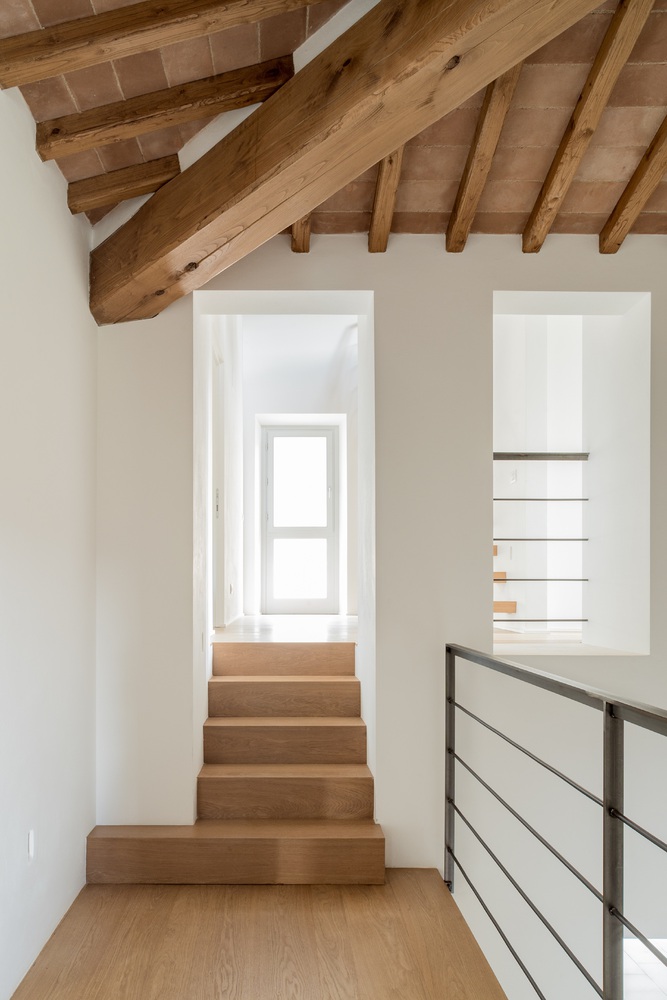
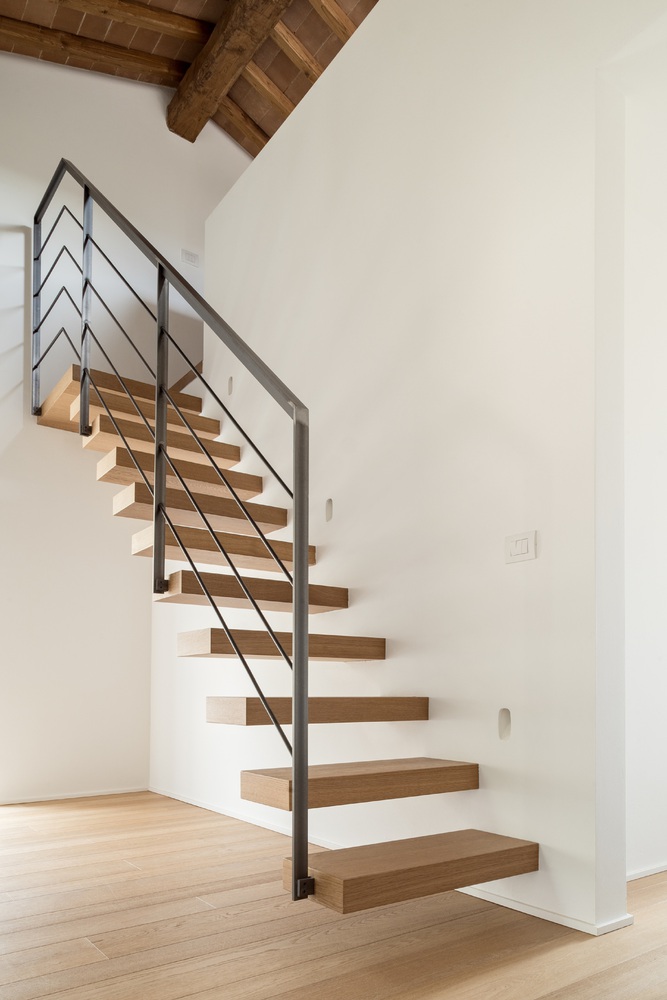

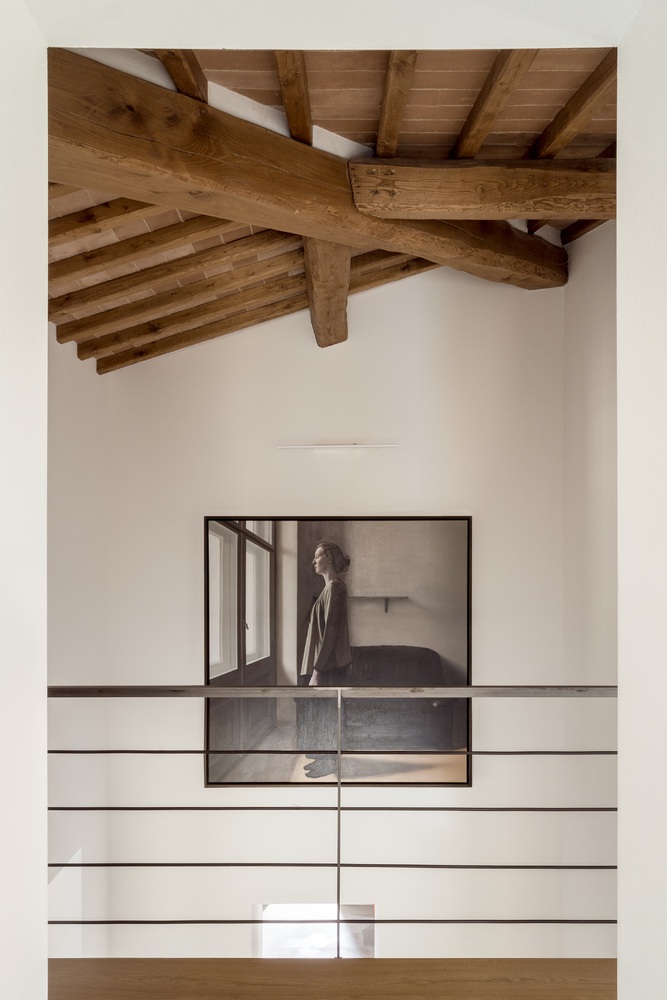
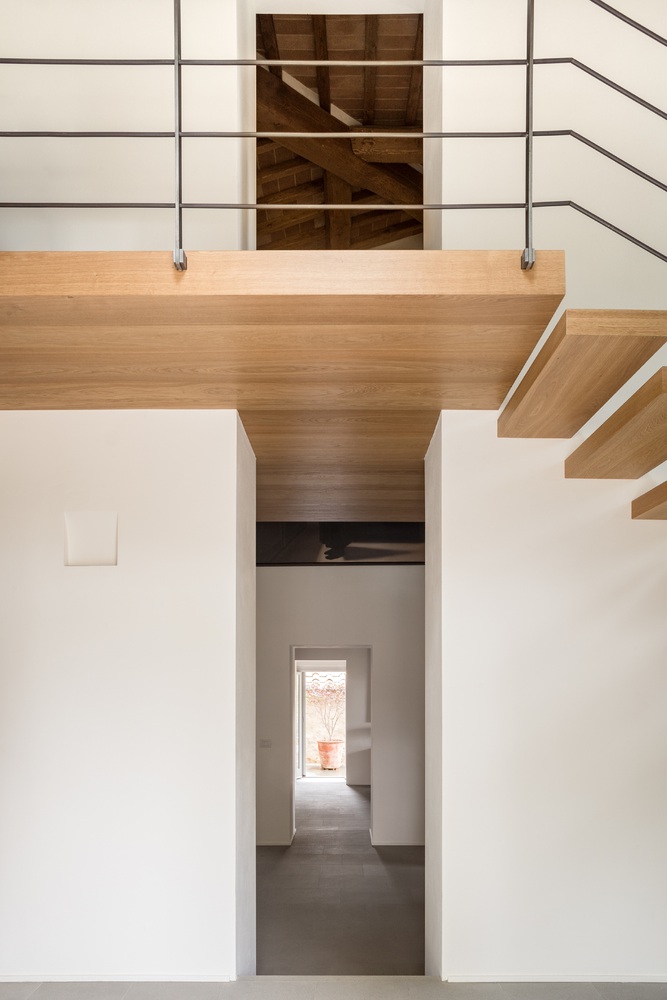
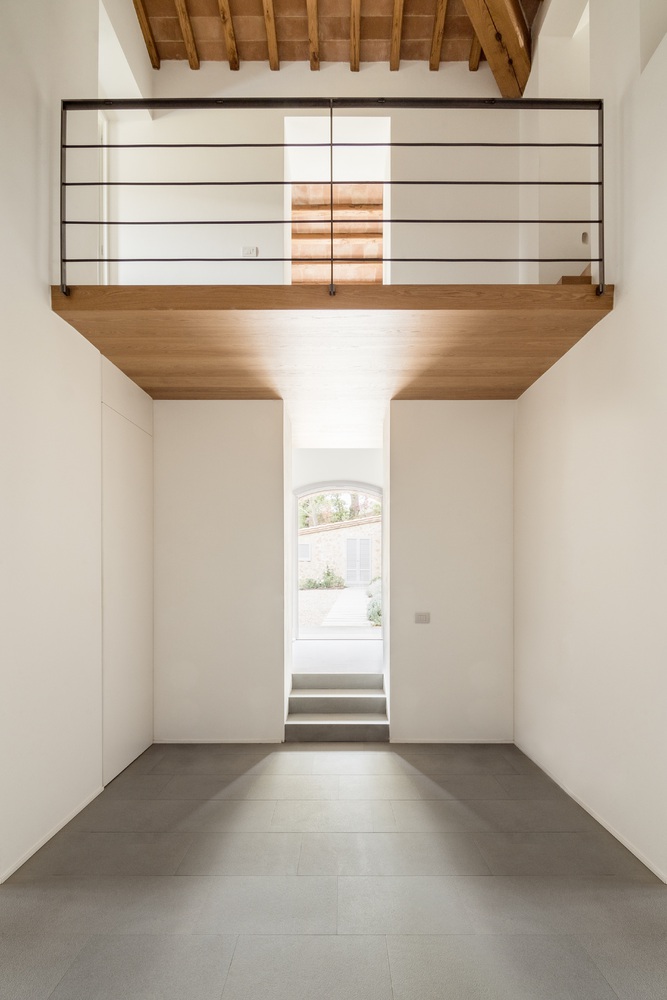
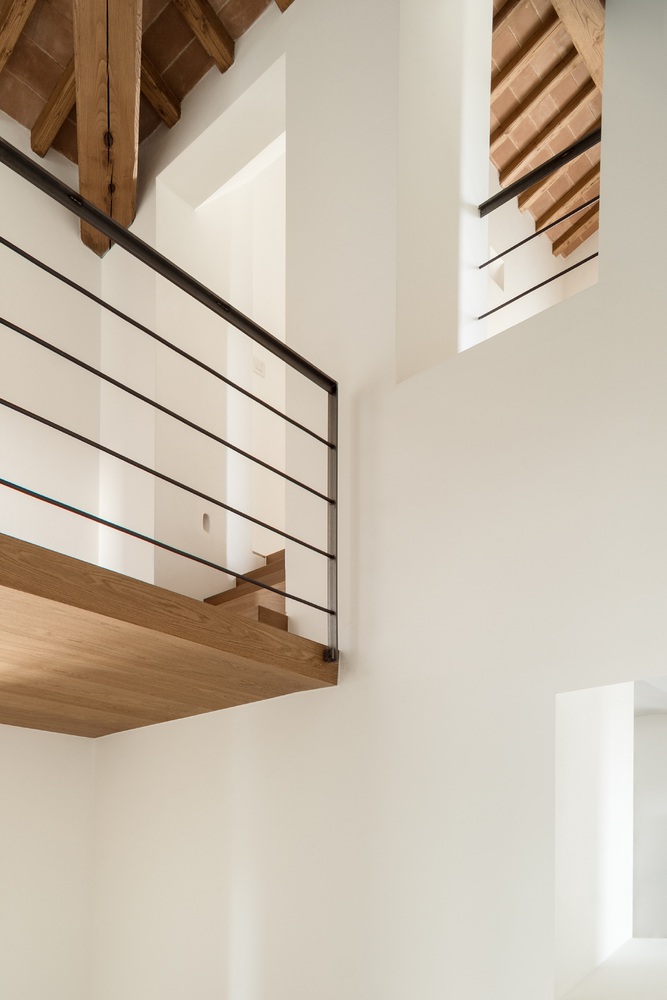
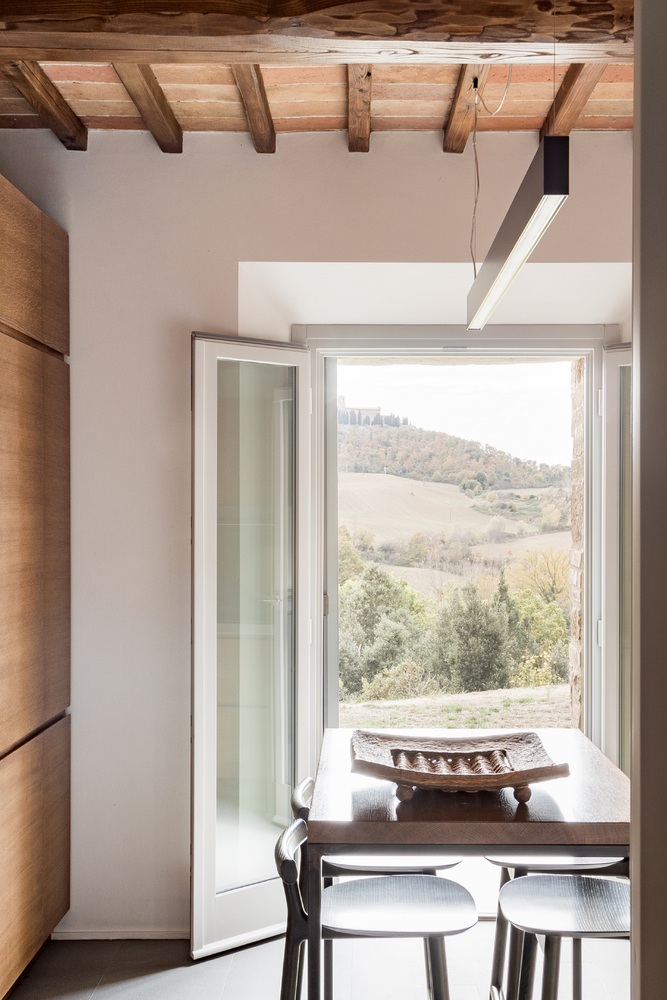
The north-facing exterior space was created by containing and terracing the uphill slope. The paved courtyard is accessible through the two French doors, virtually expanding the living room outdoors in good weather. On the first floor is the south-facing master 'suite' with study, bedroom, bathroom, and walk-in wardrobe. The other bedrooms face east and west respectively. The new entryway and connected spaces are the most dynamic.


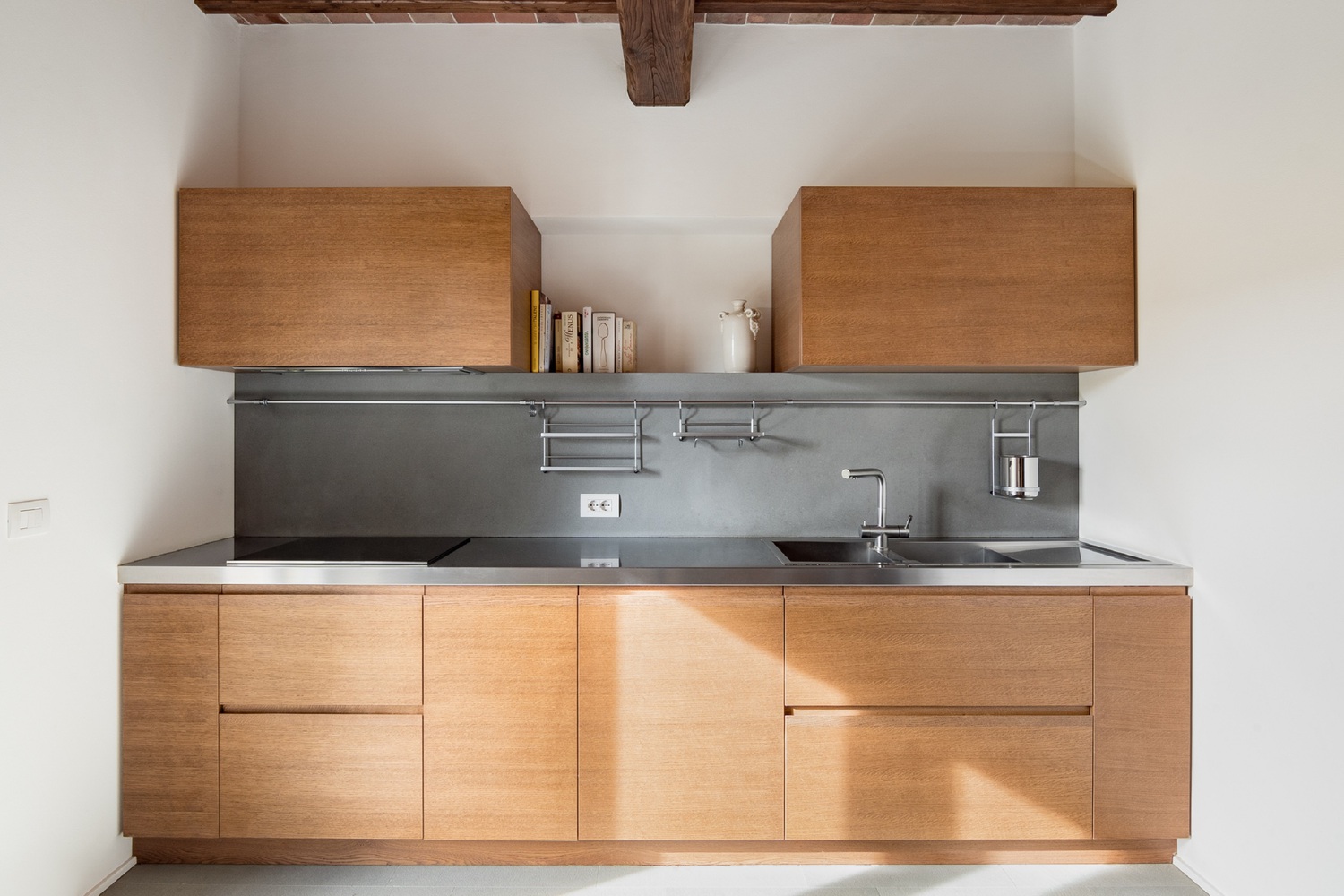
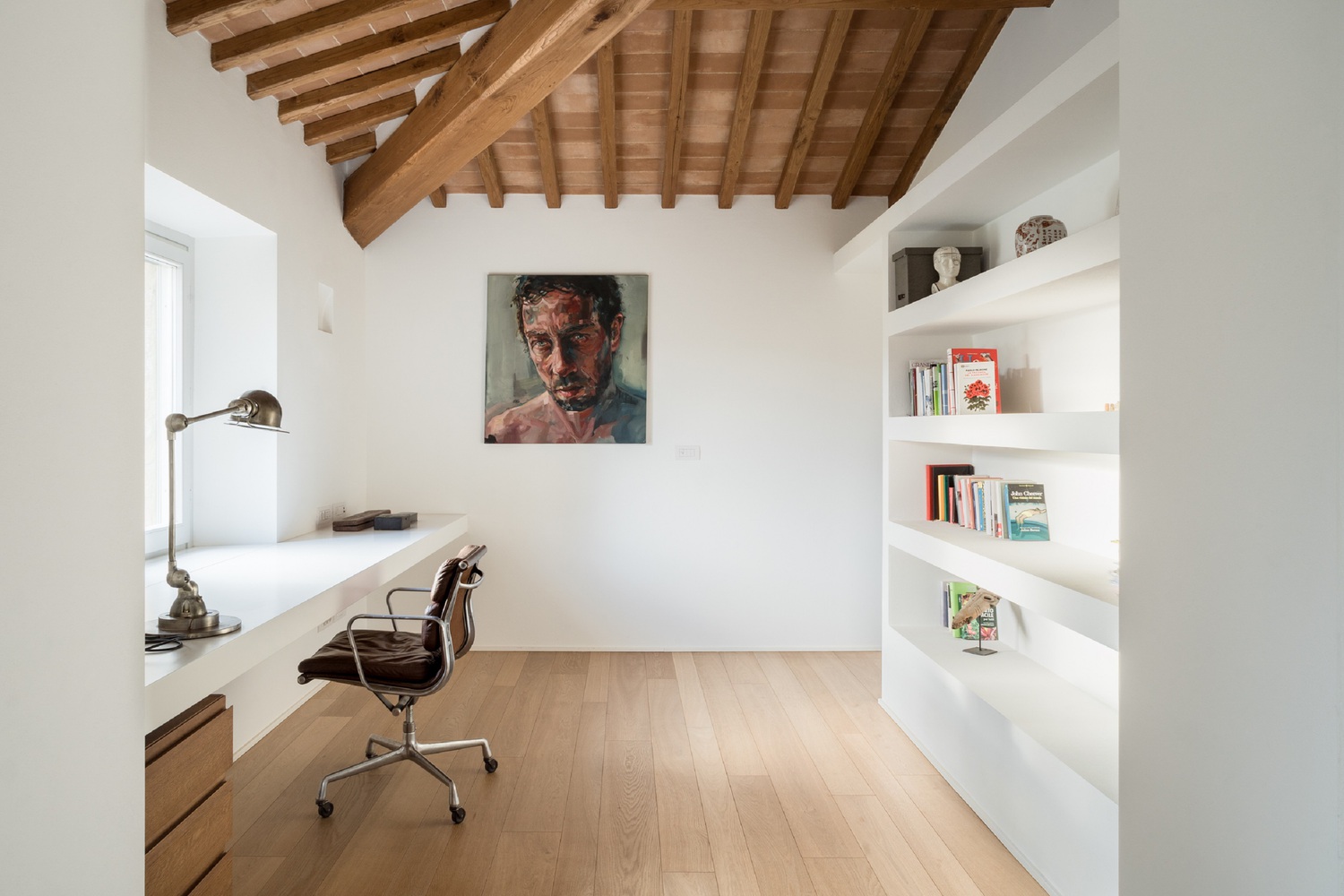
The entry has a sequence of openings whose axis crosses the farmhouse, three-dimensionally connecting the various interior spaces in terms of perception and function. The staircase leads to a "bridge" overlooking another double-height space located almost at the building’s center, corresponding to a "quadrant" of the hipped roof. The façades and roofs were treated conservatively using local materials and techniques.
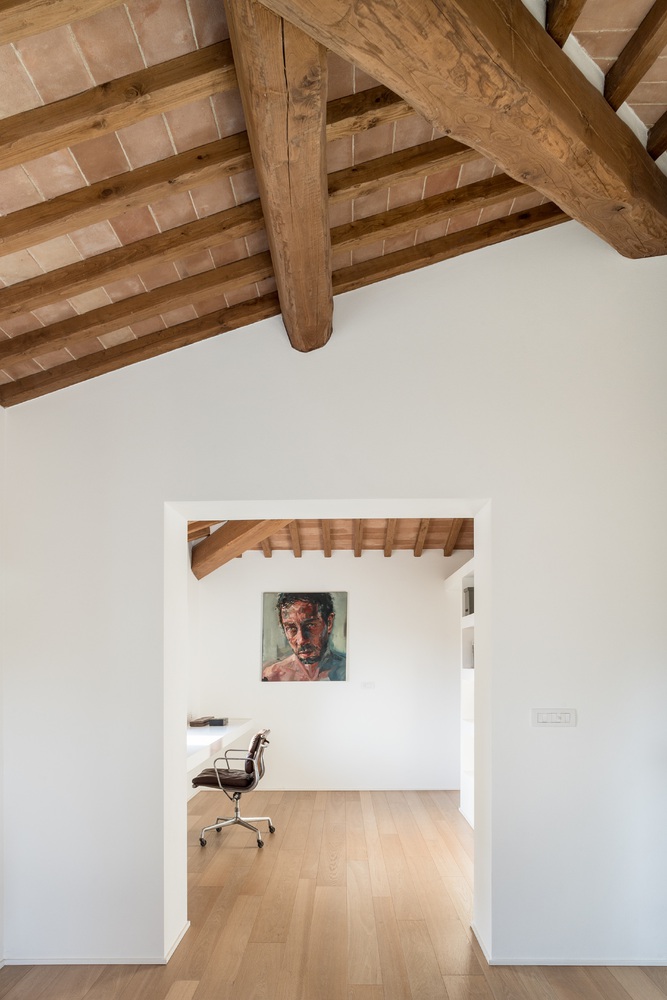

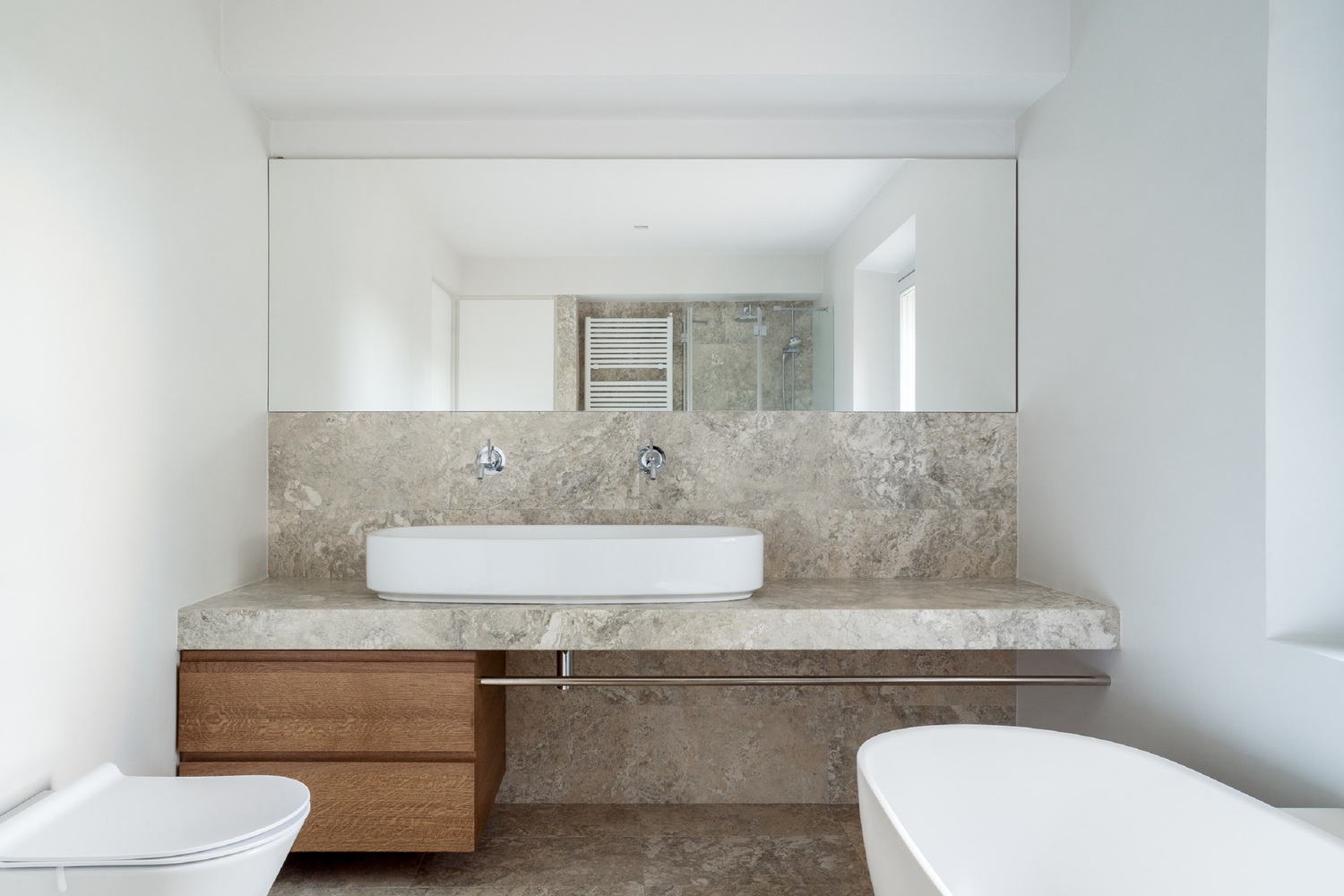
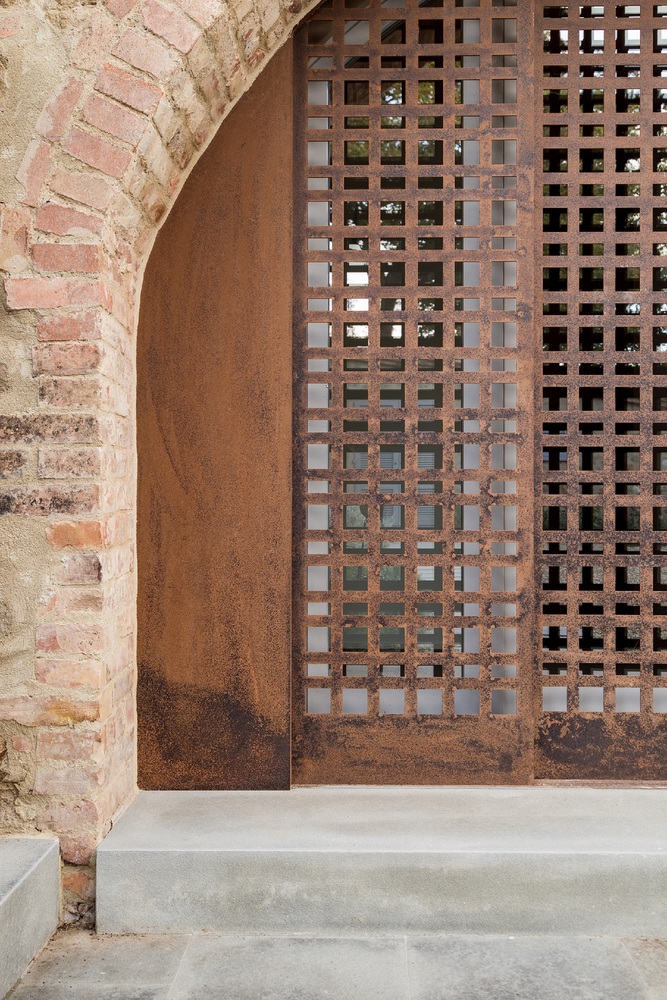
The main materials used on the exteriors are extra-hard pietra serena, stone, or terracotta for thresholds and sills; corten steel profiles for railings and gates, and new exterior stairs. On the interiors are extra-hard sandstone and handcrafted parquet for the floors, green travertine and extra-hard pietra serena for bathrooms and services, and painted wood interior finishes.
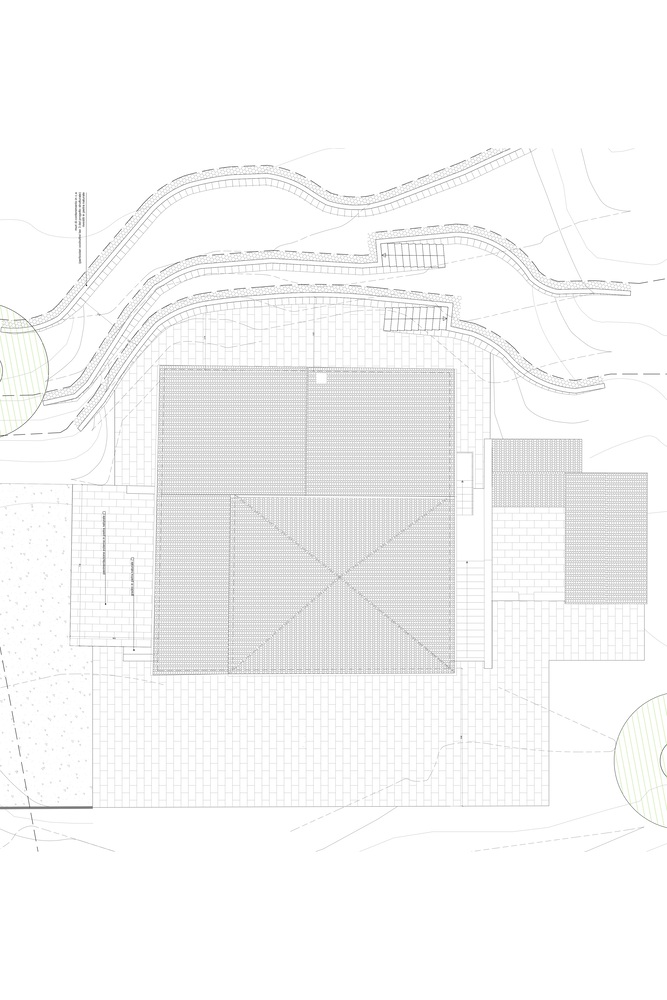
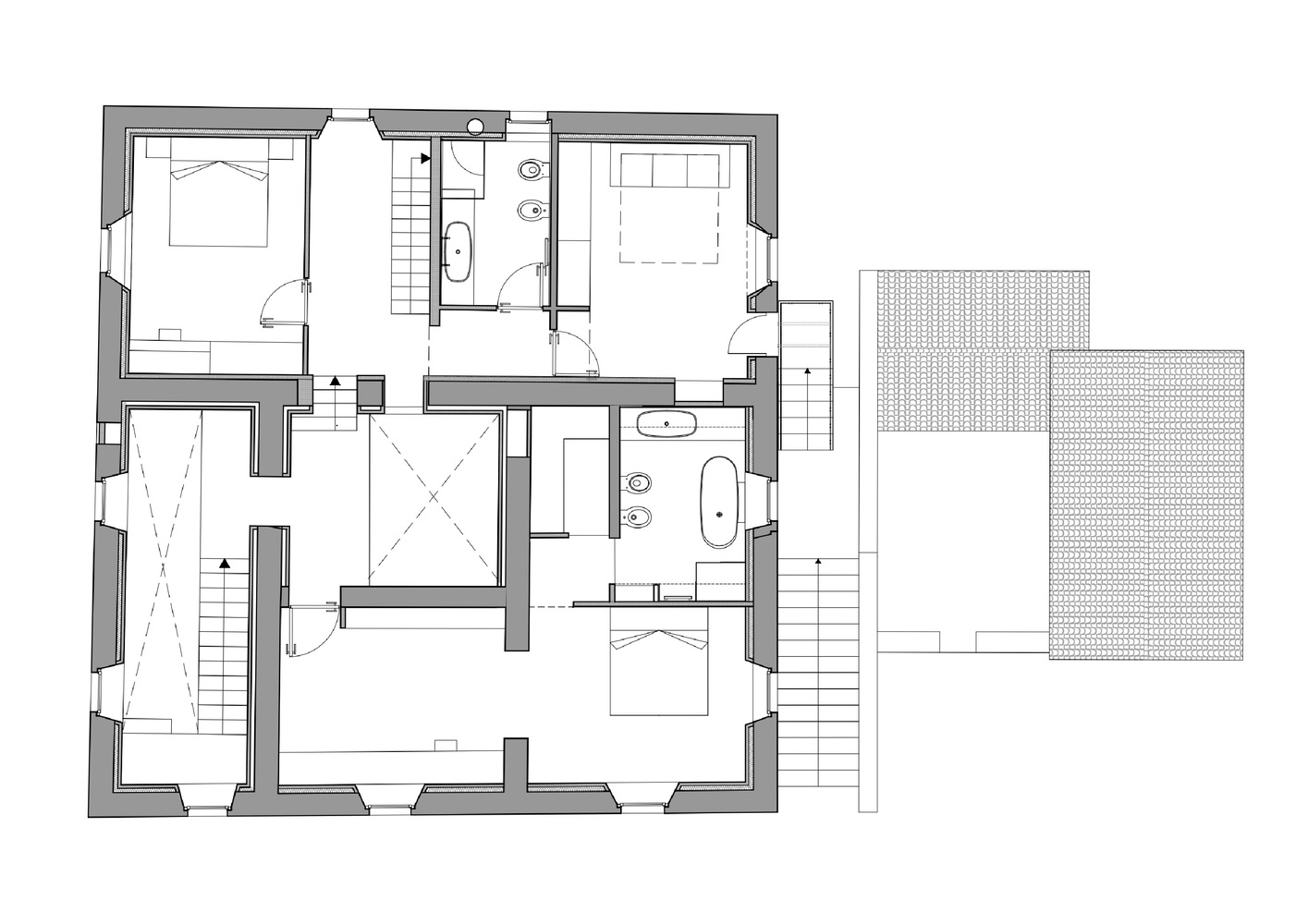
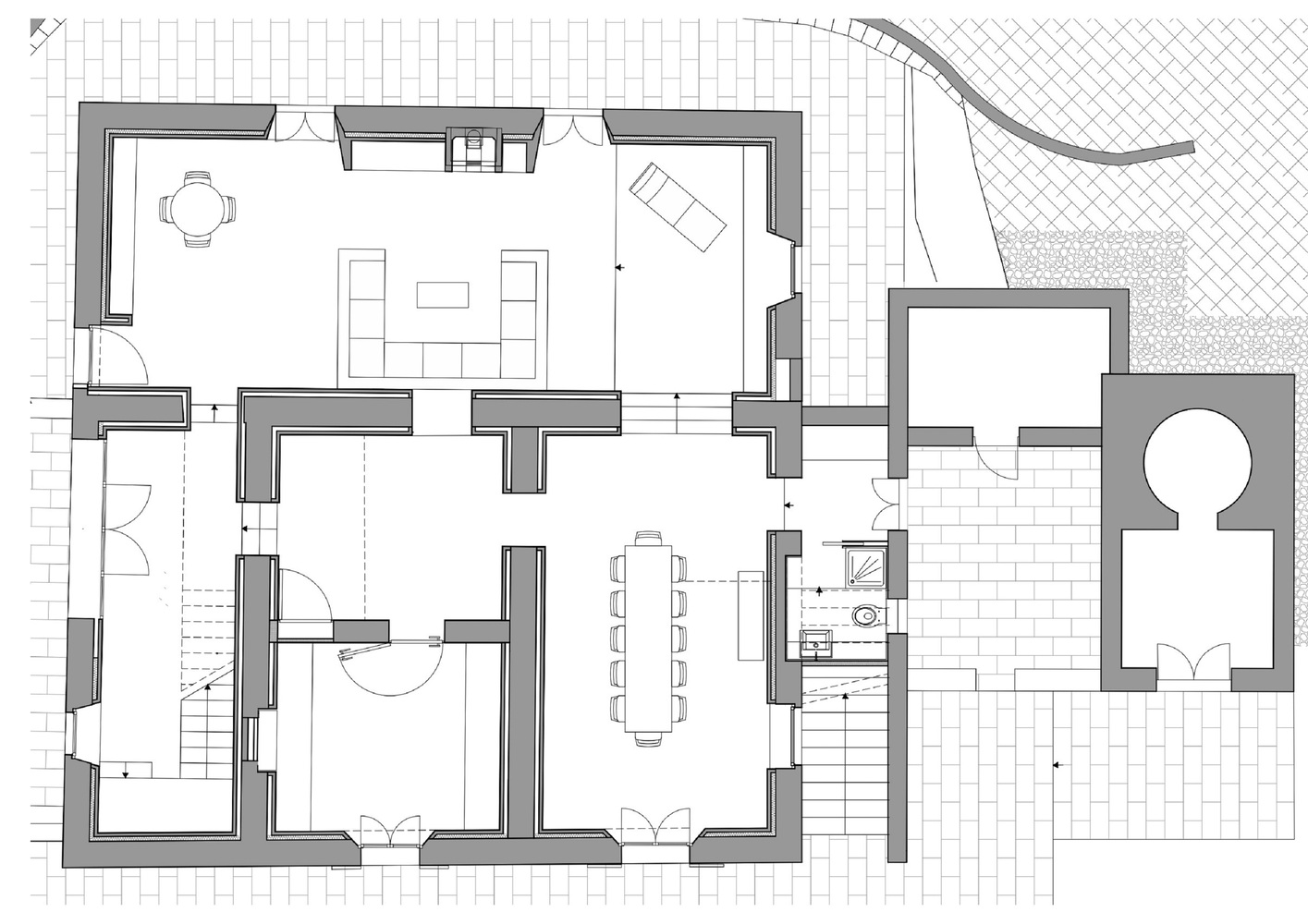

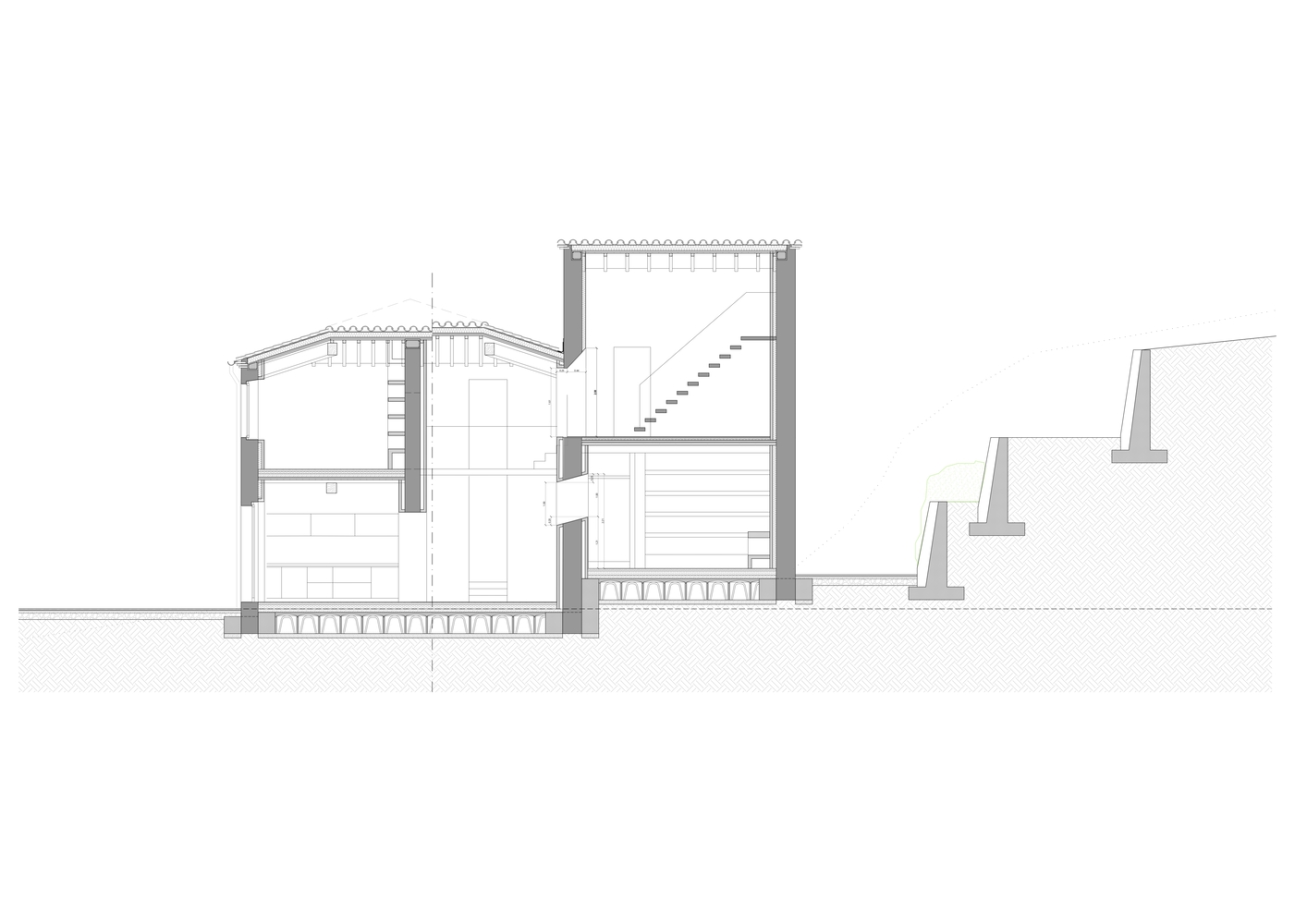
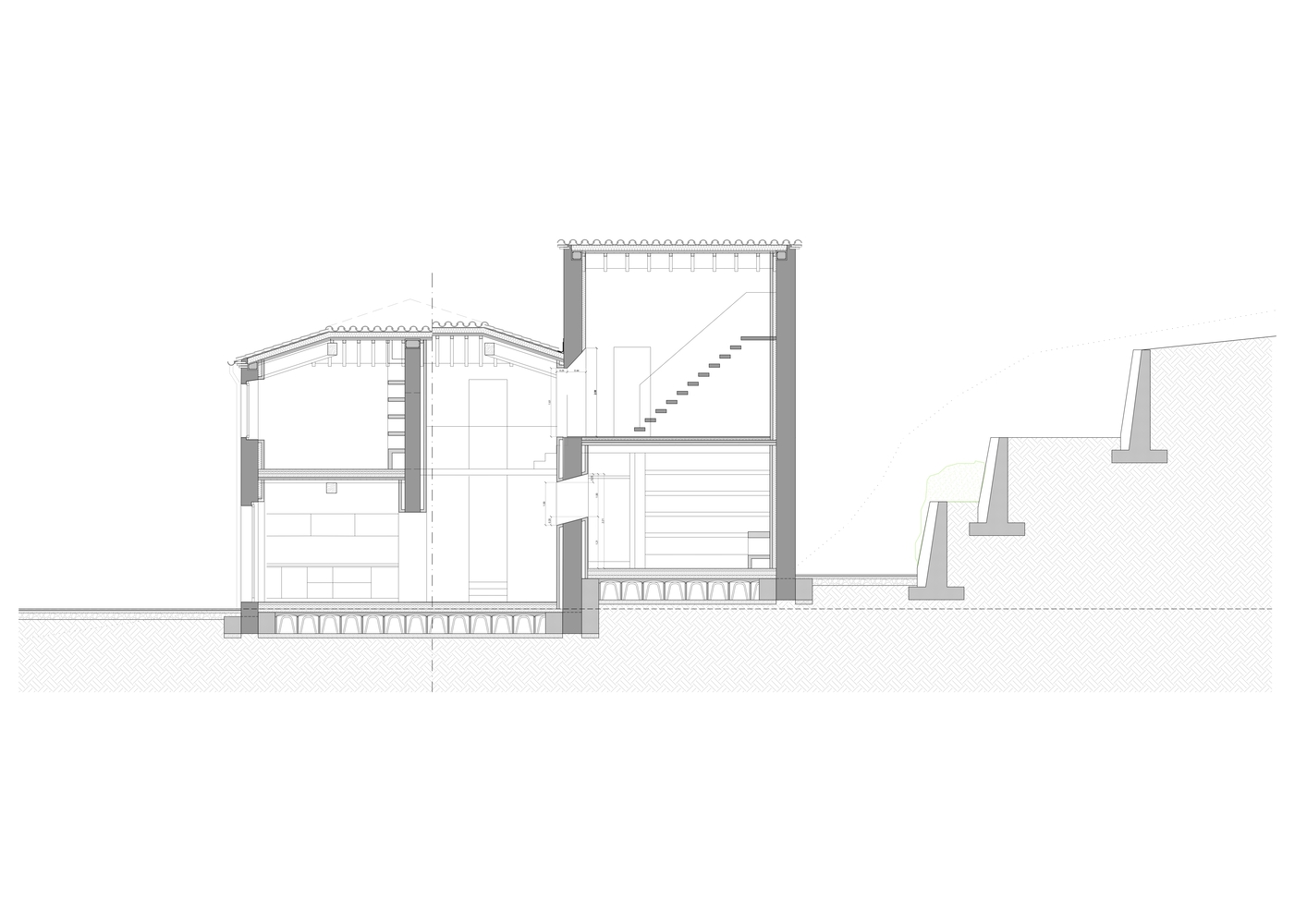
扫描二维码分享到微信